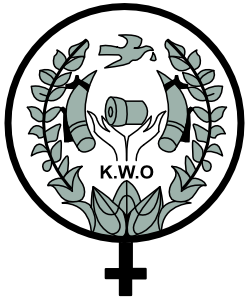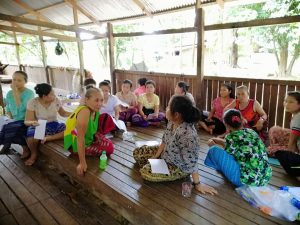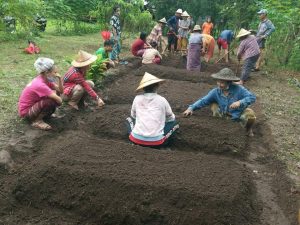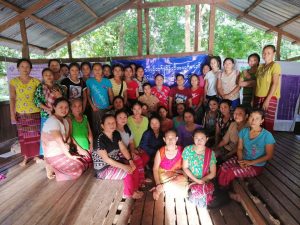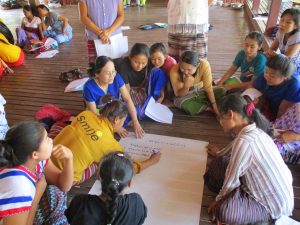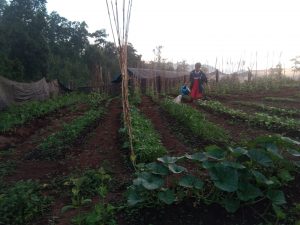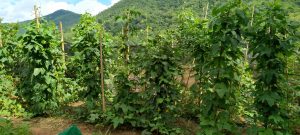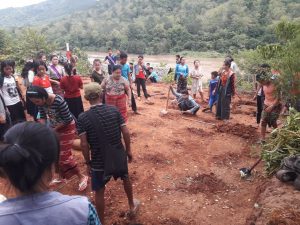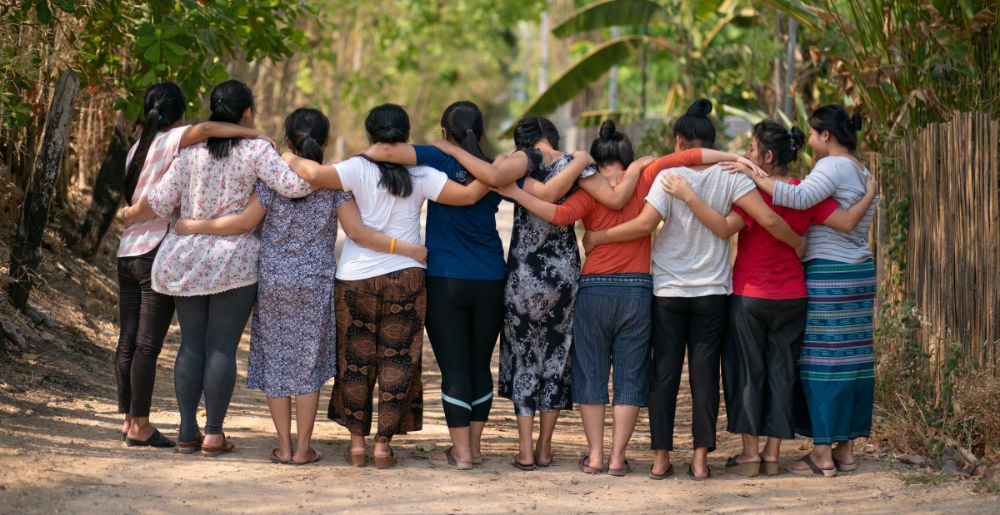KWO believes sustainable and equitable development depends on community ownership and the full participation of women in all community decision-making. By becoming an implementing partner in this project, with 18 other community organisations, we have new opportunities to make progress together towards gender equality and to strengthen community resilience.
1. Project Goal
To promote agricultural productivity, nutrition and social protection in conflict-affected and displaced communities across South East Burma. By building on the capacities of 18 ethnic service providers (ESPs) and civil society organisations (CSOs), STAND UP seeks to promote Federalism from below.
2. Location
We implement our activities for this project in 6 districts in Karen State in Burma, but not in all the townships in those districts.
3. Overview
KWO is an implementing partner in the “STAND UP Project” with The Border Consortium (TBC) and a network of 18 ethnic service providers and civil society organisations. Each organisation conducts activities across South East Burma, within its own field of expertise. KWO’s contribution in the project is to advance gender mainstreaming and social protections. We provide services, advocacy and capacity building training. To strengthen civil society we conduct community workshops for leaders and grassroots community members on gender awareness, SGBV and human rights. In sites where it is safe, we organise large community celebrations to raise awareness about gender equality on International Women’s Day (IWD). To improve social protections we provide training and material support to improve the nutrition and food programs in village Nursery Schools and Student Dormitories.
We are trying to change community attitudes about women, to deepen understanding of women’s rights and human rights. The STANDUP project invited us to target the male-dominated leadership in the community. In the community workshops of course we include women as well, but this project is where we really try to get men involved in gender analysis and we want to see change happening in attitudes and behaviours. It is slow and challenging work but KWO believes men have an important role to play in respecting womens’ rights and in the liberation of the whole community.
In 2023 there were at least 226 Burma Army airstrikes in Karen State, and 9,032 incidents of long-range indiscriminate artillery shelling of civilian targets. This dangerous and volatile situation has caused challenges and limitations to KWO delivering our services in the area.
4. Beneficiaries and Participants
In the 2022-23 project year:
- 13 women trainers participated in central level Training of Trainers (TOT) workshops. These trainers were field coordinators representing various districts across Karen State.
- 105 KWO staff and local leaders participated in the TOT workshops at district level.
- 1,142 youth in Middle and High schools learnt more about gender equality through KWO Gender-Based Violence awareness raising sessions.
- 727 Dormitory and Nursery school students (440 girls and 287 boys) received training in kitchen gardens, seeds and tools, and then benefited from increased availability of vegetables.
- 166 pregnant women and children in the most vulnerable positions benefited from direct cash transfers and information about nutrition.
- 2,539 internally displaced persons (2,340 males and 1,199 females from 921 households) benefited from KWO food support.
- 192 teachers received stipends to continue teaching and raising awareness of health and nutrition issues in early childhood education.
5. Main Activities
The main activities KWO conducts under this project are:
- Training of Trainers (TOT) conducted at Central Level KWO and in each District, covering these topics: Gender Awareness, Human Rights, CEDAW, Women’s Protection, Child Protection, Indigenous Rights, and Facilitator Skills. 43 active trainers (Senior and Field).
- Gender Awareness and Rights workshops delivered to men and women in communities, with a focus on getting men involved.
- Early Childhood Development, improved nutrition and food security for children under 5 years of age. This is an outreach program to encourage nutritious infant and young child feeding behaviours.
- Agriculture training: Kitchen gardens for Nursery Schools and Student Dormitories (in collaboration with KORD and KESAN). Training and material support in the form of seeds and tools.
6. Who does the work?
There are 3 project staff managing this project. There are 13 Senior KWO trainers, and about 30 active field trainers who provide community workshops. In addition, the staff of the KWO Early Childhood Development and Dormitory projects organise the collaboration with the children and parents. All are Karen people living in their communities, mostly women and a small number of men who are trainers or are carers in the male student dormitories.
7. The Impact
Civil society at village and township levels have strengthened capacities to respond to needs and represent local communities. And we do see gradual change in attitudes towards women, a slow opening up and accepting women’s greater role in decision making. For example, invitations to KWO have increased for women leaders to attend community meetings and to speak at community events.
The collaborative nature of this project is providing new ways to reinforce the resilience of our conflict-affected communities.
